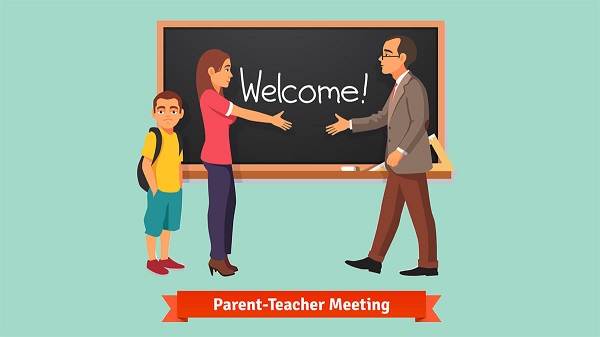
You can contribute to your child’s learning and well-being by working with your child’s school and teachers. Interviews with school personnel and other parents are the best ways to learn about your child’s educational progress. So if you are concerned about your child’s well-being, contact the school. Some of the top IB schools in Chennai (https://www.internationalvillage.org/) encourage parents to participate in school activities, especially primary schools. For secondary schools, parents must contact the teachers assigned for their child. To put it simply, when parents and schools communicate effectively, it is beneficial to both parties.
You can read more here to learn how a good relationship between home and school is crucial for your child’s overall development.
How To Set Up An Impactful Parents-Teachers Meeting?
Even if you’re not involved with the school, you can still contribute to a positive learning environment. Parents are involved in their children’s education because they understand the school’s academic programme and its operation, and they gain greater confidence in their involvement. They can also help teachers meet their students’ needs and increase teacher morale.
Communication between parents and teachers is essential to help students achieve academically. Meeting people in person, whether at conferences or their homes or through telephone calls, curriculum nights or open houses, or other events, appears to be the most effective form of communication and may also be one of the most familiar. Face-to-face interviews are encouraged at the top schools in Chennai so that parents can provide positive information about their children. The following section describes a few impactful ways to set up an effective parents-teachers meeting.

How To Make Teacher-Parent Communication Effective?
In your first meeting with parents, tell them about their child’s progress and achievements. To introduce yourself to the parent or guardian, write down the reasons for the call. Relationships between nursery staff and parents are essential to support children’s learning and development.
Positive relationships with parents can help children adjust to new situations. If your parents believe they have a strong relationship with you, they will seek assistance. However, ensure that proper communication is carried over with working parents who may not have time to stop and chat and with the parents who speak only a limited English.
It is important that parents are warm and approachable to build respectful relationships and trust with their child’s practitioners. Teachers must inform parents about their child’s education and development and provide them with information that is easily accessible. Here are a few key etiquettes to follow while setting up an interview with the parents.
- Invite parents to participate in activities and events in your setting.
- Put up signs that make parents aware of professionals and organisations providing early intervention assistance and support.
- When talking with parents, create a confidential space, be attentive, and use active listening skills.
- Encourage parents to participate in family learning workshops or to share ideas at coffee mornings or drop-in sessions.
- Encourage parents to participate in social events to build their support networks.


